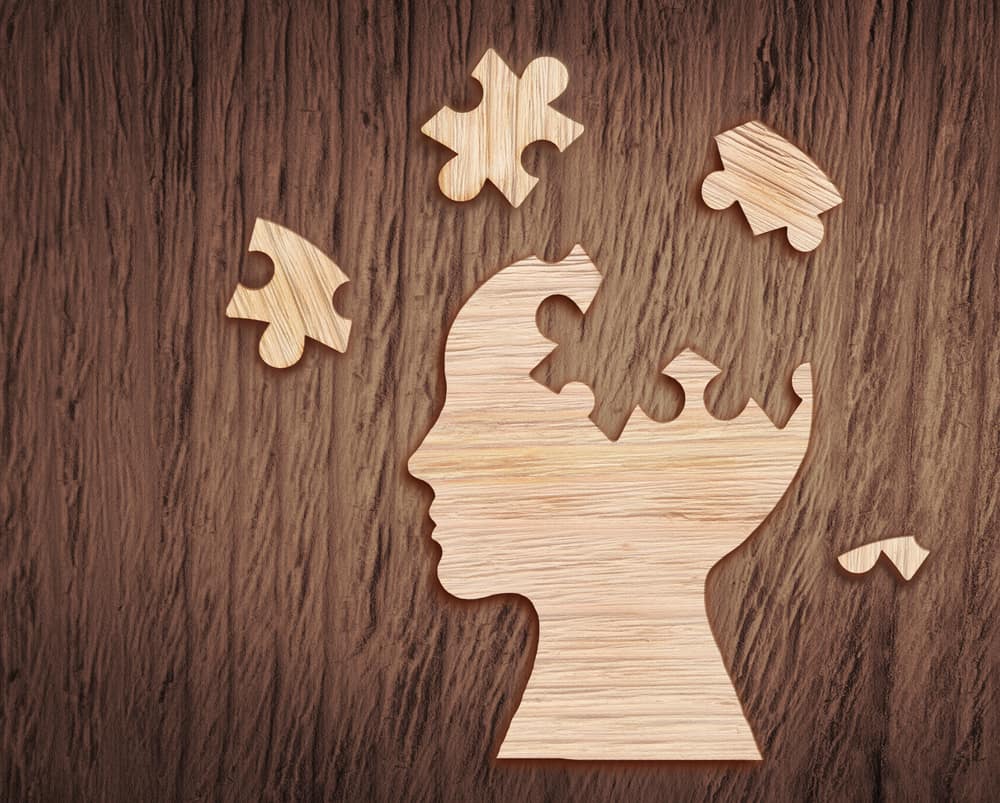Accelerated resolution therapy (ART) is a type of innovative psychotherapy that can be a highly beneficial form of treatment for those suffering from addiction and mental health disorders. It was developed by Laney Rosenzweig, LMFT, and is influenced by various evidence-based therapies, such as cognitive-behavioral therapy, eye movement desensitization reprocessing (EMDR), guided imagery, exposure therapy, and gestalt therapy.
What is EMDR therapy and how does it work? Check out our blog article for more insights.
The NREPP (National Registry of Evidence-Based Programs and Practices), a subsidiary of SAMHSA (Substance Abuse and Mental Health Services Administration), determined that accelerated resolution therapy is an effective form of treatment for PTSD and depression. It was also established to be a potentially effective trauma therapy for those suffering from addiction, anxiety, phobias, panic disorders, and other mental health conditions.
At Northbound Treatment, we offer a variety of treatment programs to help individuals overcome addiction and mental health disorders, often combining multiple therapy approaches. Here’s what you need to know about accelerated resolution therapy as a part of the continuum of care at a rehabilitation center.
What is Accelerated Resolution Therapy?
Sometimes referred to as advanced resolution therapy or rapid resolution therapy, the exposure-based psychotherapy technique has been shown to achieve results much quicker than other approaches, often within five sessions or less. In many cases, the remarkable benefits of accelerated resolution therapy can occur after only one session.
In addition to the mental health conditions mentioned above, ART may be beneficial for those with:
- Interpersonal (relationship) issues
- Performance anxiety
- Family issues
- Low self-esteem
- Codependency
Accelerated resolution therapy can also be a useful approach for individuals who are experiencing grief, memory problems, difficulty focusing, insomnia, and chronic pain.
How Resolutions Therapy Works
Accelerated resolution therapy is a relatively straightforward treatment approach. According to the Rosenzweig Center for Rapid Recovery, by integrating evidence-based techniques from other psychotherapies, ART directly reprograms “the way in which distressing memories and images are stored in the brain so that they no longer trigger strong physical and emotional reactions.”
This accelerated reprogramming of how an individual stores traumatic and grievous memories can alleviate the intense emotional and physical reactions that are usually ignited by those recollections.
ART Eye Movement
A fundamental component of rapid resolution therapy is eye movement in which a patient’s rapid eye movement (REM) is targeted to achieve therapeutic benefits. During the eye movement portion of an ART session, the therapist asks the patient to follow their hand or an object as it moves laterally back and forth through their field of view.
This stimulated eye movement has been shown to make patients feel more at ease, which often allows them to access internal triggers, such as the disturbing images of a traumatic experience. With access to this imagery, accelerated resolution therapy can move forward with healing the patient’s responses to the traumatic images.
Voluntary Imagery Replacement
In order to move forward from trauma, the therapist will then guide the patient to voluntary imagery replacement (VIR). This technique encourages the patient to draw from their creativity to adjust the image into one that doesn’t generate a negative response. Instead of changing the narrative of the trauma, VIR is intended to contrive alternative imagery, which makes it so that the traumatic memory can no longer cause internal distress.
One Issue at a Time
Aside from making progress and achieving results faster than other forms of psychotherapy, a distinct advantage to ART is that patients are only expected to focus on one issue at a time. Upon resolving their reactions to one internal trigger, which typically occurs within the first few sessions, they can move onto another issue. Processing several issues at once can be overwhelming for some patients and prevent healing. Yet with accelerated resolution therapy, they can experience quick progress without becoming overwhelmed.
A Quick Route to Positive Changes
With accelerated resolution therapy, patients are in control of each session — the therapist is simply there to guide them. Some traumatic memories and triggering images can be upsetting to visualize. However, ART is designed to quickly carry patients past the point of being stuck on trauma and help them reach positive changes.
The brief treatment model can provide relief from debilitating mental setbacks in a short period — as opposed to attending many sessions with some long-term therapy approaches. Also, the quick results experienced after one or two sessions is often enough to motivate clients to continue accelerated resolution therapy.
No Talk Therapy Needed
Another reason ART fares well with clients is that talking about their past traumas, emotional triggers, or difficult life experiences isn’t a requirement of the treatment approach. As we mentioned, thinking about disturbing experiences can be painful. Those who suffer from psychological trauma and depression usually already experience recurring negative thoughts or flashbacks, and many appreciate the option to process this mental distress without a verbal discussion. With accelerated resolution therapy, the images and memories can stay private or discussed at a later date.
Accelerated Resolution Therapy for Addiction
Addiction and substance abuse disorder affect millions of people in the U.S. Those who struggle with these conditions often have difficulty participating in daily activities, holding jobs, maintaining healthy relationships, and remaining physically healthy. Sadly, the consequences can sometimes be fatal. Although overcoming addiction or substance abuse disorders may seem impossible, recovery is an option for everyone.
ART is a treatment approach most often used for those with PTSD symptoms (post-traumatic stress disorder) and depression. However, it’s also included in some comprehensive treatment programs that target multiple conditions, including substance abuse and addiction. Sometimes, accelerated resolution therapy is part of dual diagnosis treatment for addicts, alcoholics, and people with substance abuse disorder.
Dual Diagnosis Treatment
Drug and alcohol addiction is a complex mental illness that’s influenced by a variety of factors, including a person’s genetics, lifestyle, environment, brain chemistry, and past experiences. In many cases, addiction coincides with one or more mental health disorders or psychological issues, such as depression, anxiety, trauma, PTSD, OCD (obsessive-compulsive disorder), ADHD (attention-deficit hyperactivity disorder), codependency, bipolar disorder, borderline personality disorder, schizophrenia, and eating disorders. Both can impact how an individual’s brain processes information and experiences.
Common types of co-occurring disorders include:
- Codependency and alcoholism
- Stress and addiction
- Bipolar disorder and alcoholism
- Depression and alcoholism
- Anxiety and benzodiazepine addiction
Someone with a dual diagnosis (or co-occurring disorders) suffers from a substance abuse disorder as well as a mental health condition. In that vein, many people turn to drugs and alcohol to cope with or mask underlying psychological distress. In other instances, addiction is the first condition to occur, which then leads to another mental health disorder. While it’s not always clear whether substance abuse issues or a mental health condition occurred first, integrated dual diagnosis treatment allows individuals to effectively manage and overcome both.
Those with addiction are about twice as likely to also suffer from anxiety or a mood disorder. Addiction and mental illness both affect how the brain processes and responds to information. Since co-occurring disorders create obstacles for effectively navigating recovery, Northbound offers dual diagnosis treatment, which addresses multiple conditions simultaneously as part of a complete recovery plan.
Northbound’s Approach to Mental Health Treatment
Northbound Treatment has been helping people overcome their addictions for over 30 years. Our experience and dedication to researching the best treatments have allowed us to develop residential rehab and outpatient programs that effectively address the complex issues our clients face. In order to fully heal and recover, mental health and substance abuse issues must be combatted at the same time. Our fully integrated dual diagnosis treatment center in Orange County offers a range of programs that implement multiple evidence-based therapies.
The evidence-based therapies we use include:
- Cognitive-behavioral therapy (CBT)
- Dialectical behavioral therapy (DBT)
- Motivational interviewing
- Eye movement desensitization and reprocessing (EMDR)
- Experiential therapy
Drawing from a large toolbox of therapeutic approaches allows us to serve the unique needs of our patients and develop individual recovery plans. Although addiction and mental illness are common, there is no one-size-fits-all treatment solution. Ultimately, a client’s route to recovery will be based on the nature of their disorder, as well as their experiences, lifestyle, predispositions, and preferences.
At Northbound Treatment, each client undergoes a comprehensive biopsychosocial evaluation to ensure they receive treatment that’s right for them. Our trusted approach to recovery is based on research. As such, the clinical team at Northbound is dedicated to helping each and every one of our clients resolve their psychological setbacks, surmount their barriers, and live freely.
If you or a loved one is struggling with addiction, substance abuse, or mental health problems, call Northbound Treatment at (844) 919-0403 or fill out our online form.
Interested in learning more? Check out our articles Art Therapy for Trauma and What is Trauma Informed Care? for more information on trauma therapy.
Sources:
- Clarke, Jodi, MA, and LPC/MHSP. “Struggling with PTSD? ART May Help.” Verywellmind.com. N.p., n.d., https://www.verywellmind.com/accelerated-resolution-therapy-overview-4588053
- “EBP Resource Center.” Samhsa.gov. N.p., n.d., https://www.samhsa.gov/ebp-resource-center
- “Post Traumatic Stress Treatment | ART International.” Artherapyinternational.org. N.p., n.d., https://artherapyinternational.org/treatment/post-traumatic-stress/
- Finnegan, Alan et al. “Accelerated Resolution Therapy: An Innovative Mental Health Intervention to Treat Post-Traumatic Stress Disorder.” Journal of the Royal Army Medical Corps 162.2 (2016): 90–97. Print., https://www.ncbi.nlm.nih.gov/pubmed/26141210
- “Comorbidity: Addiction and Other Mental Illnesses”, National Institute on drug abuse, https://www.drugabuse.gov/sites/default/files/rrcomorbidity.pdf
- “Accelerated Resolution Therapy – Treating Trauma.” Acceleratedresolutiontherapy.com. N.p., n.d., https://acceleratedresolutiontherapy.com/
Author
-

President, CEO & Founder at Northbound Treatment Network
Paul Alexander is the CEO, President & Founder of Northbound Treatment Network in Newport Beach, California. He believes wholeheartedly in transformational leadership, organizational health and effective, fully integrated substance use disorder and mental health treatment. With over 27 years of experience in behavioral healthcare, Paul has extensive knowledge of “in vivo” treatment modalities, clinical development, operations, strategy, marketing and financial planning. He has been widely recognized for his development of collegiate-based residential treatment programs for students in recovery and authored a research study at The University of California confirming this modality’s effectiveness.
Paul’s comprehensive professional experience, willingness to innovate, and emphasis on organizational health are vital factors in Northbound’s continued success. Paul received his Certified Addiction Treatment Specialist training at Saddleback College in Mission Viejo, CA, and was awarded Outstanding Alumni Service Award in 2002. Paul holds a Bachelor of Arts degree in Criminology, Law and Society, Summa Cum Laude, from University of California, Irvine, and a Juris Doctorate degree from Loyola Law School of Los Angeles. Paul currently serves on The National Association of Addiction Treatment Providers (NAATP) board. In addition, he serves on The Family Recovery Foundation board and The CarePossible board in Orange County; both organizations are committed to raising funds for family recovery and treatment for former military personnel. Paul is in recovery himself and lives in Orange County with his wife Silvana and his two young sons, Noah and Dean.







